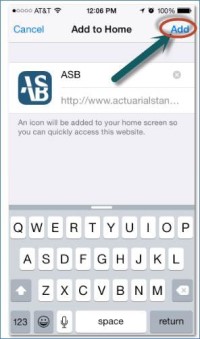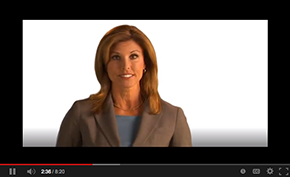Now that the turkey’s been eaten and 2017 is drawing to a close, most of you will have completed your continuing education (CE) requirements for the year. If, however, you are in need of an hour or so of professionalism CE, or just want to get a head start for next year, the Academy offers a wide range of professionalism resources that can help.
These professionalism resources are not just for CE, however; they are here to help you maintain high standards of professionalism year-round. It is a good idea to read the Code of Professional Conduct, the U.S. Qualification Standards (USQS), and the actuarial standards of practice that apply to your work at least once a year, and we encourage you to do so.
Should you have questions about professionalism, or just want a quick refresher, the first place to turn is the Academy’s professionalism webpage, which features links not only to the Code of Professional Conduct and standards of qualification and practice, but to useful tools and other resources created by the Academy to help actuaries understand and meet professionalism requirements.
The Code of Professional Conduct, the foundation of actuarial professionalism, identifies the professional and ethical standards required of actuaries who practice in the United States. Academy members may request a handy pocket-size copy of the Code on the professionalism webpage.
The USQS lay out the requirements for an actuary issuing statements of actuarial opinion in the United States. To provide more information and help you interpret the requirements, the Committee on Qualifications (COQ) has published more than 50 answers to frequently asked questions, and the Academy has published an infographic on CE requirements. If, after perusing these resources, you have not found the answer to your question, you may submit a question to the COQ.
The Academy’s USQS Attestation Form is an easy-to-use tool for actuaries who want to demonstrate how they meet the general qualifications of the USQS, and if applicable to their practice, the specific requirements for signing NAIC annual life, health, and property/casualty statements of actuarial opinion.
Actuarial standards of practice (ASOPs), published by the Actuarial Standards Board (ASB), provide binding guidance on what an actuary should consider, document, and disclose when performing an actuarial assignment. To keep up to date on which standards are being drafted, revised, exposed for comment, or have been adopted, subscribe to the ASB Boxscore, the ASB’s quarterly newsletter. The ASB website is mobile-friendly—download an icon for easy access.
The Applicability Guidelines contain provide helpful, nonbinding information on which ASOPs might apply to an assignment by listing common actuarial tasks in each practice area and suggesting which ASOP(s) might apply to each one.
The resources we’ve discussed so far are all specific to actuarial standards of conduct, qualifications, or practice, but the Academy also provides resources that more deeply examine what these standards mean for your daily practice.
For example, the Academy produces four popular, low-cost professionalism webinars each year, featuring in-depth discussions by presenters with significant experience in professionalism topics such as actuary-to-actuary communication, the qualification standards, precepts of the Code, and disclosure. By listening to these archived webinars, available free of charge to Academy members, you can earn professionalism CE credit. Participating in them live earns you organized CE credit. The next professionalism webinar, “Tales From the Dark Side: The ABCD and Actual Ethical Problems,” will be Wednesday, Dec. 20, from noon to 1:30 p.m. EST.
For a deeper dive into professionalism issues, the Academy produces a variety of articles and papers each year. For example, the concept of reliance in the ASOPs, Precept 10, professionalism at career transition points, and new FAQs on the USQS are just a few of the professionalism topics this column has covered in the last year.
And, if you need assistance navigating an ethically challenging situation, you may submit a confidential request for guidance to the ABCD, and they will help you work through your questions.
Finally, the Academy’s Speakers Bureau offers a way for you to request a knowledgeable and experienced professionalism speaker for actuarial clubs and in house employer training events.
(Featured in the November 2017 Actuarial Update.)




